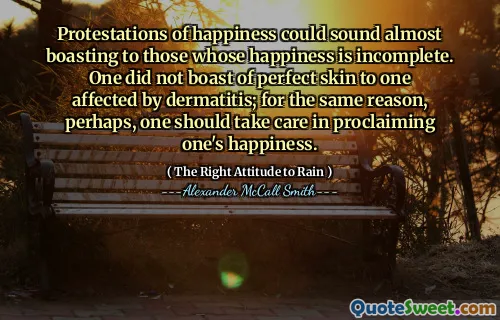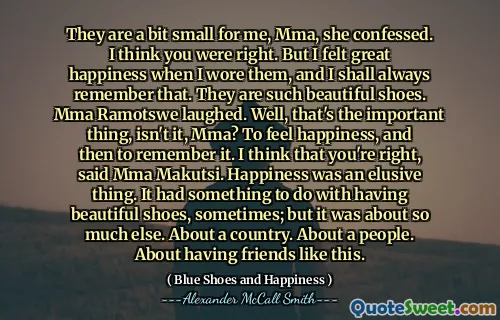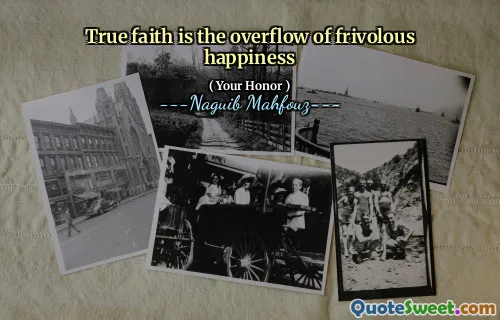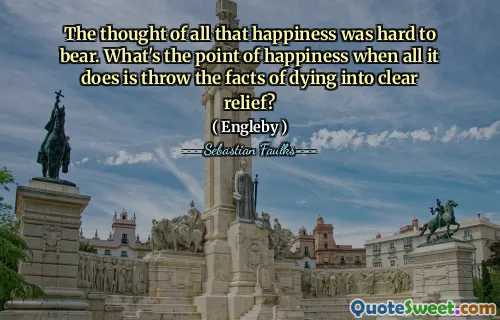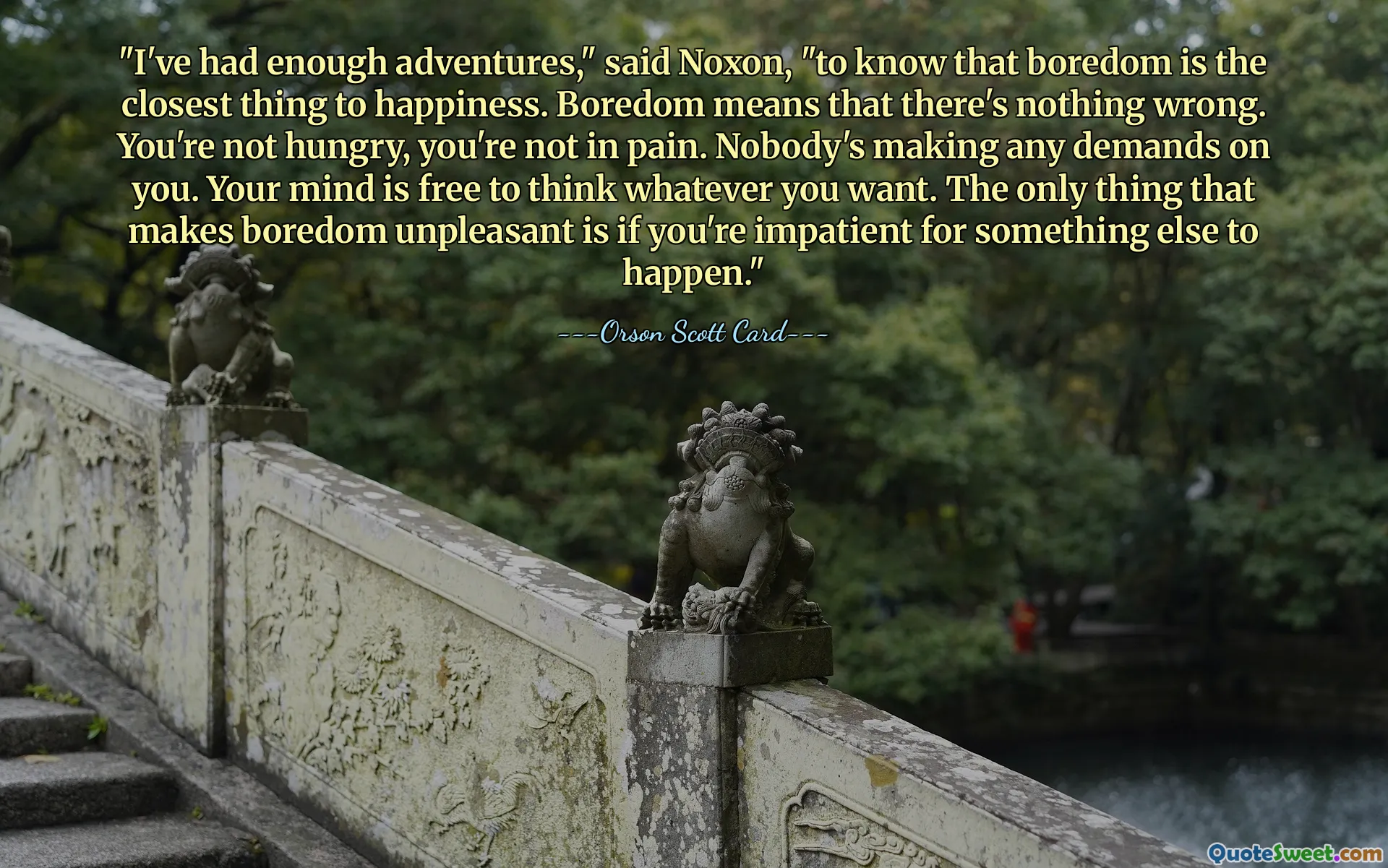
"I've had enough adventures," said Noxon, "to know that boredom is the closest thing to happiness. Boredom means that there's nothing wrong. You're not hungry, you're not in pain. Nobody's making any demands on you. Your mind is free to think whatever you want. The only thing that makes boredom unpleasant is if you're impatient for something else to happen."
This quote offers a profound perspective on the nature of boredom and its surprising connection to happiness. At first glance, boredom is often perceived negatively—a dull, restless state to be avoided. Yet, Noxon's reflection turns this common mindset on its head by suggesting that boredom is actually a sign of equilibrium and wellbeing. When bored, there is an absence of pain, hunger, or external demands—conditions that often dominate our daily concerns. In this light, boredom represents a peaceful, stable state where the mind is unburdened and free to wander.
Moreover, the quote highlights how our perception of boredom is tied to our sense of patience and anticipation. If boredom becomes unpleasant, it reflects an impatience for life's next event or stimulation, revealing a deeper dissatisfaction or restlessness. This insight resonates deeply in a world increasingly driven by constant activity and distraction. It invites us to reconsider our relationship with moments of silence or inactivity and to recognize them as opportunities rather than voids.
Cultivating the ability to embrace boredom might thus be a pathway toward greater contentment. It implies a maturity of spirit, an acceptance of stillness, and an openness to the present moment without needing it to be continuously exciting. Orson Scott Card, through Noxon's words, gives us a gentle reminder that happiness can lie not in relentless adventure or excitement, but in the simple, untroubled experience of being at peace with ourselves and our circumstances.







